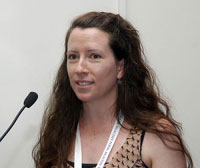



Education: A Key Legacy of Poultry CRC
AUSTRALIA - Dr Rob Moore and his team have built on previous research to produce a number of vaccines that will be exploring commercially in the near future.
This will be of great benefit to the global poultry industry as the threat of necrotic enteritis outbreaks is becoming higher, even in countries where in-feed antibiotics are used. This is due to the massive increase in the free range sector of the broiler industry, which does not permit the use of in-feed antibiotics.
The Poultry CRC will also introduce some of its students. The Poultry CRC has 24 postgraduates and 6 honours students who are currently enrolled or who have just completed their degrees. These researchers will be an important legacy of the Poultry CRC because driving innovation in poultry production requires a highly educated personnel base. A great deal of effort has been devoted to attracting, supporting and nurturing students to engage in poultry research and develop interest in the poultry industry. To achieve this, special workshops have been organised for students, postdoctoral scientists and industry interns each year.
The Poultry CRC also sponsors its students to attend conferences, enabling them to mingle with the experts and industry people. A recent such event was the Australian Poultry Science Symposium held between 19-23 February in Sydney. The Symposium attracted a record attendance, including 28 students, of whom 18 presented their findings. The Poultry CRC’s Student Prize was hotly contested. A presentation by Miss Penelope Steer from The University of Melbourne, entitled “Determination of the virulence and pathogenicity of Australian fowl adenovirus field strains in chickens”, was unanimously recommended as the winner by eight expert judges.
Another important benefit of the Symposium was the number of international visitors received after the meeting at the CRC headquarters. This included Dr Henk Enting from Nutreco, one of CRC's partners, and Professor Birger Svihus from the Norwegian University of Life Sciences (UMB). Professor Svihus stayed for 12 days and many interesting ideas that will help define some future research projects were discussed. Birger is not new to the CRC. In fact, he initiated a highly successful project on litter consumption and gut health in layers and broilers.









